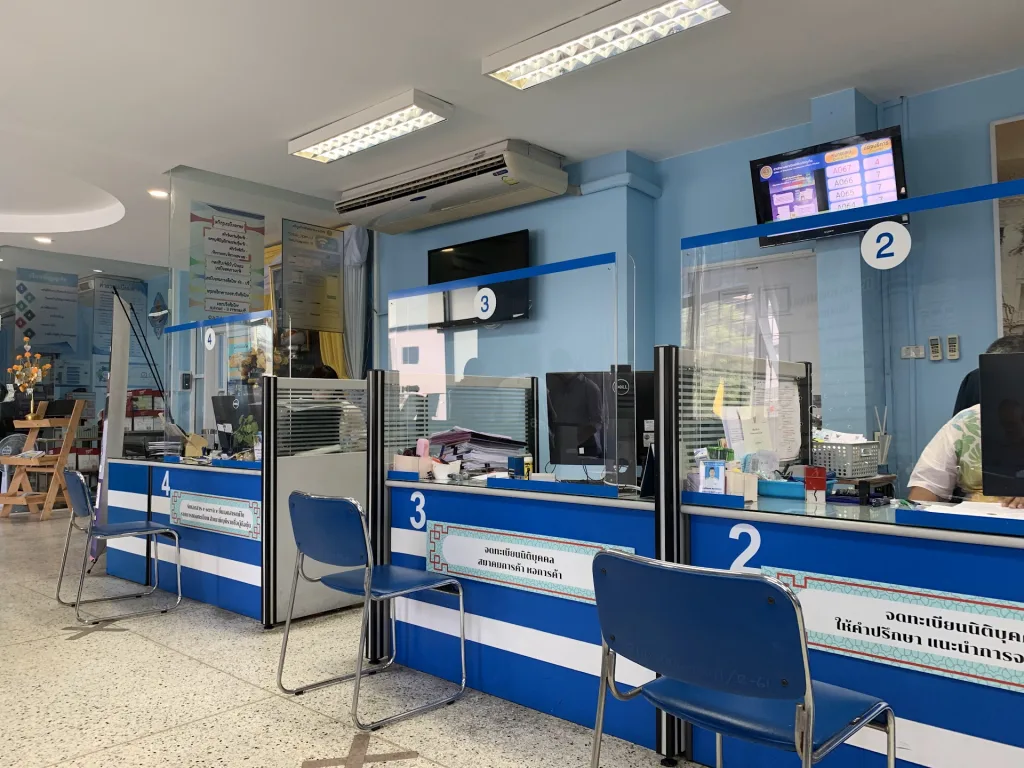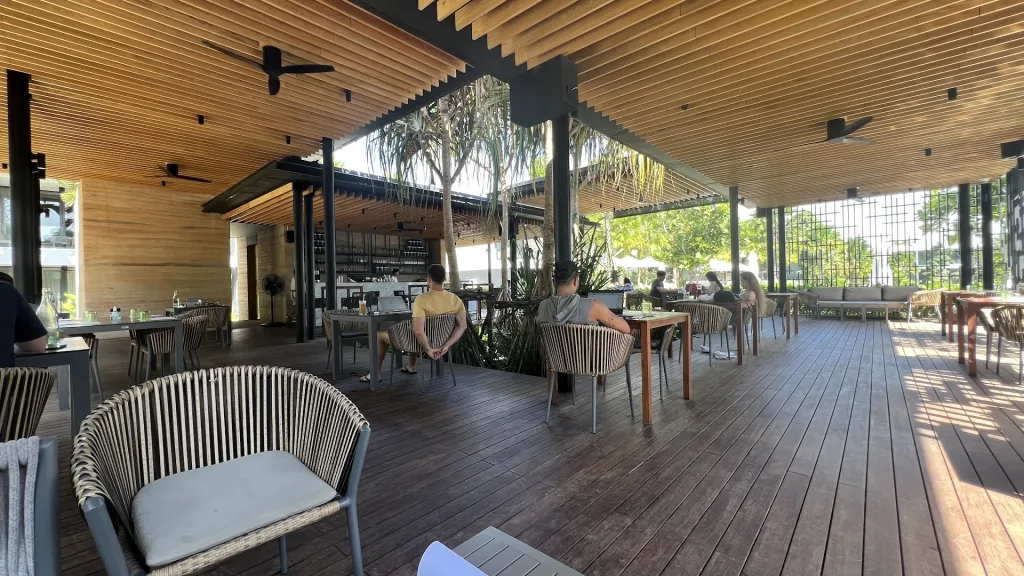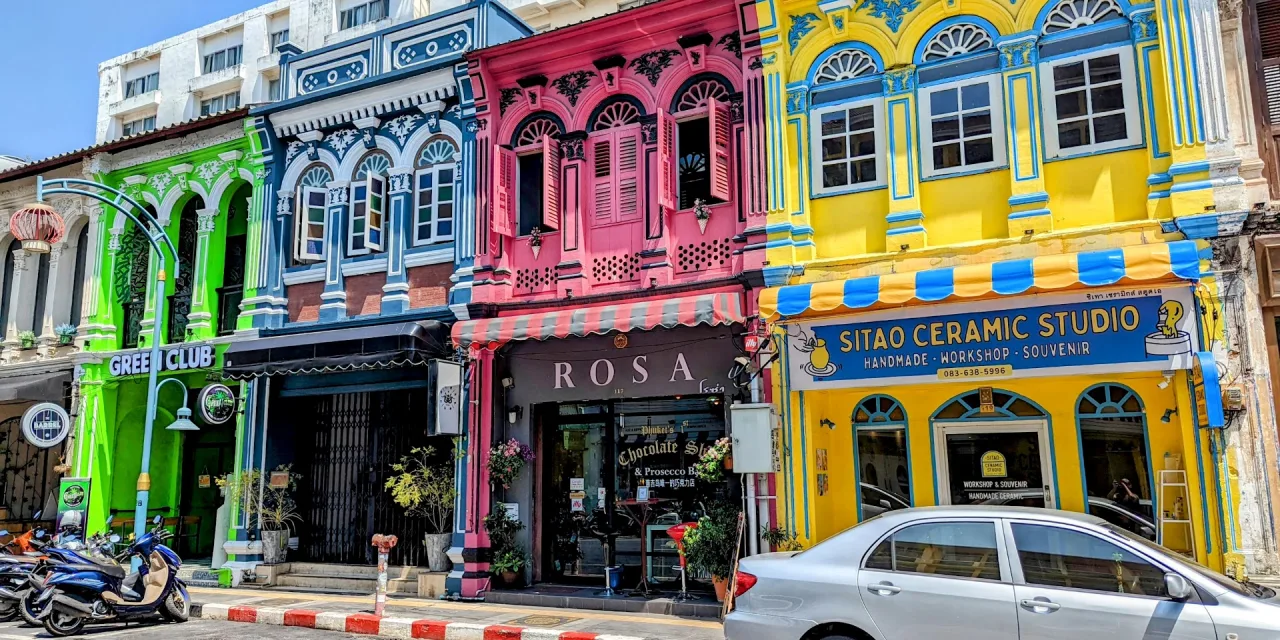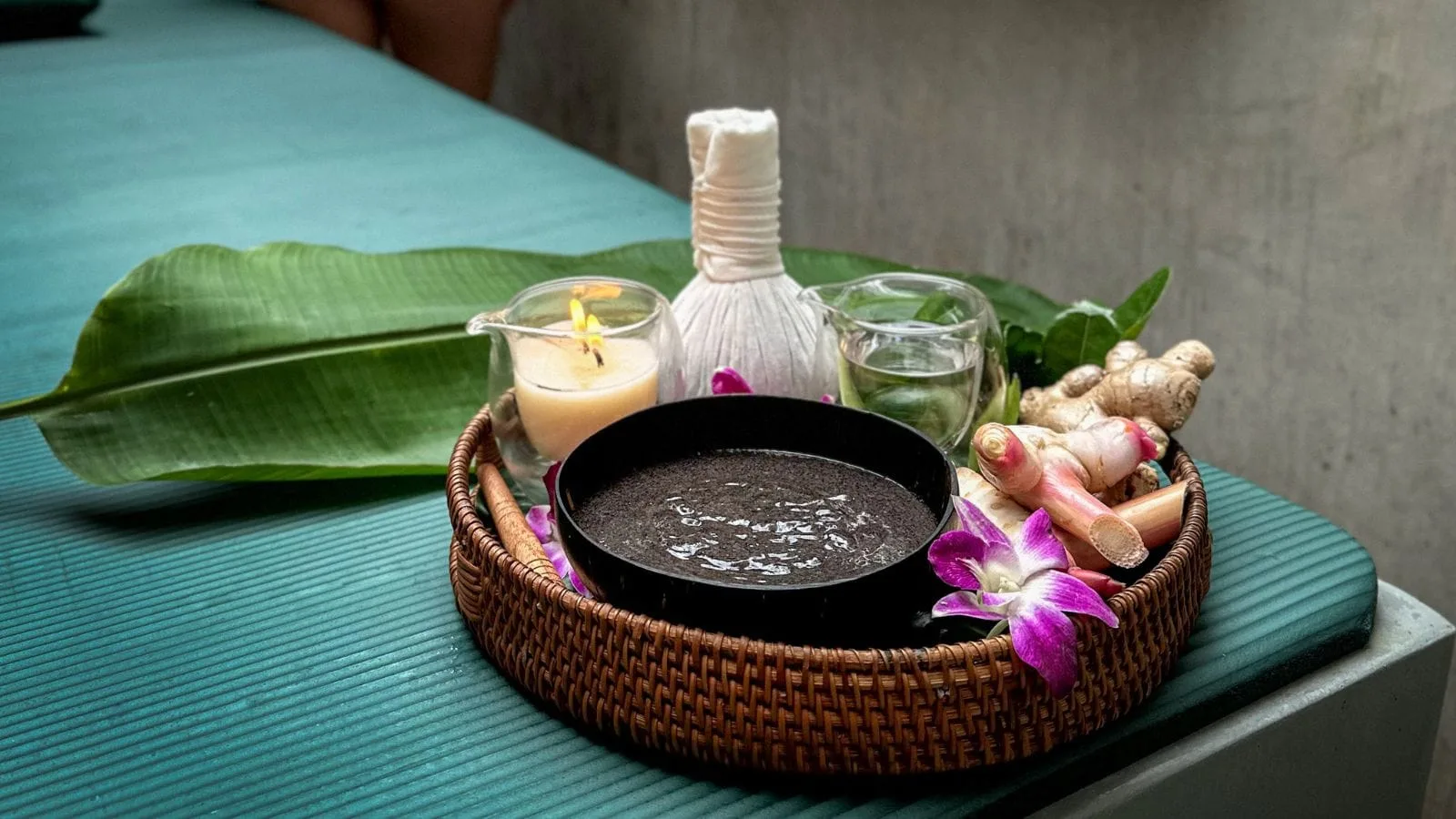Starting a business in Phuket can be both exciting and challenging. This 2025 guide covers everything you need to know, from legal setup and budgeting to hiring local staff, managing seasonality, and understanding Thai business culture. Whether you’re opening a café, gym, or creative venture, you’ll learn how to build a sustainable operation, avoid costly mistakes, and survive your first year on the island. It’s a must-read for entrepreneurs and expats who want to turn their Phuket dream into a lasting reality.
Table of Contents
Phuket attracts millions of visitors each year, and for a small but significant percentage of them, a seed is planted: What if I stayed? What if I built a life — or even a business — here? Some never leave, some test the waters by coming and going, and others eventually take the leap to build something lasting in the Kingdom.
With the launch of Thailand’s new Digital Nomad / DTV visa, it has become easier for remote workers and online entrepreneurs to settle in Phuket without needing to establish a physical business. But this article isn’t about the laptop crowd. This guide is for those rolling up their sleeves and building something on the ground — whether that’s the dreamer who thinks about opening a café or gym, or the founder drawn to Phuket for its unique work-life balance.
The reality is that your first year running a business in Phuket is the hardest. It’s a year of navigating new rules, new costs, new rhythms, and a new culture. While the dream is beaches by day and customers by night, the reality requires patience, preparation, and a deep respect for Thai ways of doing business.
That said, if you can make it work, Phuket offers a lifestyle and business environment unlike anywhere else in the world. This article will give you a clear-eyed outlook on what it takes to budget, plan your operational runway, and adapt to succeed in your first year here.
Legal & Structural Basics
Before we get into budgeting, it’s important to face the hard truth: foreigners cannot just show up in Thailand and run any business they like. There are clear rules, restrictions, and a fair amount of paperwork involved. Ignoring these — or trying to game the system — is one of the fastest ways to burn your money and your reputation.
What You Can’t Do
Thailand has a Foreign Business Act (FBA) that restricts foreigners from owning or operating certain types of businesses. Some of the jobs on this list may surprise you. For example, foreigners cannot legally:
- Work as a street vendor, hairdresser, or masseuse.
- Operate small retail shops or restaurants without the correct structures.
- Own land outright (outside of special BOI or long lease arrangements).
These rules exist to protect opportunities for Thai citizens, and they are enforced.
The Grey Areas & Loopholes
You’ll hear stories about foreigners “borrowing” a Thai name to register a company while they run things behind the scenes. This is sometimes called a nominee structure — and while it may seem tempting, it’s risky and illegal. Authorities have become much stricter in recent years.
There are legitimate ways to involve Thai partners, but they must be real partners, not names on paper. The bottom line: if you want to build something that lasts, do it properly.

Legal Structures Available
For foreigners, the main options are:
- Thai Limited Company: The most common route. Typically requires at least 51% Thai ownership, though there are ways to structure control and protect your interests with different classes of shares and agreements. Minimum registered capital is often 2 million THB per work permit.
- BOI Company: If your business qualifies for Board of Investment promotion (tech, export, large-scale tourism projects), you can receive benefits like 100% foreign ownership, tax breaks, and streamlined visas. These are harder to qualify for but powerful if you fit.
- US Treaty of Amity: If you’re American, a special treaty allows majority ownership in many sectors, though restrictions still apply.
- Partnerships / Branch Offices: Less common and often less flexible than the above, but possible in certain situations.
Visa & Work Permits
Running a business means more than just setting up the company — you also need the right visa and work permit. In most cases:
- Business Visa (Non-B) + Work Permit is required.
- Your company must justify your position and pay the required taxes and social security for you and your Thai staff.
- Expect to hire at least 4 Thai employees per foreign work permit in many cases.
Taxes & Ongoing Obligations
Don’t think you’ll be skipping taxes just because you’re in Thailand. If your company earns revenue, you’ll be paying:
- Corporate Income Tax: currently 20%.
- VAT (Value Added Tax): 7% if your revenue exceeds 1.8M THB annually.
- Social Security Contributions for your staff.
Annual audits and monthly filings are mandatory — even if your business is small.
Professional Help Is Essential
This is not a DIY country for legal structures. A good lawyer and accountant are not optional expenses — they’re your lifeline. Budget for them, listen to them, and don’t try to cut corners.
💰 Rough Cost Breakdown for Setting Up a Business in Phuket
| Expense Category | Estimated Range (THB) | Approx. Range (USD) |
| Company Registration & Legal Fees | 40,000 – 80,000 | $1,100 – $2,200 |
| Work Permit & Visa Setup (per foreigner) | 20,000 – 50,000 | $550 – $1,400 |
| Accountant (monthly retainer) | 5,000 – 15,000 | $140 – $420 |
| Annual Audit & Compliance | 30,000 – 60,000 | $830 – $1,660 |
| Registered Capital Requirement* | 2,000,000 | $55,500 |
| Licensing & Industry Fees | 10,000 – 50,000 | $280 – $1,400 |
*Registered capital isn’t always “cash on hand” from day one, but it’s legally required and impacts credibility and work permit approvals.
👉 Safe Setup Budget: Expect 150,000 – 250,000 THB ($4,200 – $7,000) in upfront setup/admin costs, before rent, renovations, or inventory.
Further reading: How to Legally Set Up a Business in Thailand for Foreigners
Setting Up and Budgeting Your First Year in Phuket
The first question you need to ask yourself isn’t “How much does it cost?” but rather “What kind of business am I setting up, and who is it for?”
Opening a restaurant in Patong is a very different financial commitment compared to running a boutique gym in Rawai or an online consultancy with a small office in Chalong. Your budget, your risks, and your chances of survival all hinge on this decision.
Runway & Planning
Once you know your type of business, the next step is ensuring you have enough runway — cash to keep the lights on when profits are slow to come. In Phuket, as elsewhere, the rule of thumb is clear: budget for 12–18 months of operating costs beyond your initial setup.
Why so much? Because you’ll face:
- Seasonality swings (low season can be brutal).
- Time to build trust and repeat customers.
- Cultural and legal adjustments that slow things down.
If you only budget for setup and then have 4–6 months of cash, you’re setting yourself up for stress. Phuket rewards patience — you need staying power.
Avoiding the Copycat Trap
It’s common to see a busy café or bar and think, “I could do that.” But Phuket is already full of “me-too” businesses. Unless you bring something unique, you risk being just another name on the strip.
Ask yourself honestly:
- What’s different about what I’m offering?
- Who is my target market — Thai locals, foreigners, or both?
- Is there real demand, or am I copying someone else’s dream?
The Thai market is massive and often overlooked by foreigners, but Phuket is unique: tourism and expats drive much of the economy. Finding your niche between these groups is critical.

Example: Setting Up a Restaurant & Bar in Phuket Town
Now I tried a few ways to display an example of how much the setup costs could be on average. Because it really depends on what type of business you’re opening and your budget, it’s hard to give a single number.
So instead, I picked a business type and location and ran two scenarios: a lean version and a polished version. These are all example fagasi numbers I made up, but they’re good averages to work from.
Let’s imagine you’re a qualified chef who wants to introduce authentic English pub grub in Phuket Town — targeting Thai customers curious about new cuisines. Here’s what it might cost to get off the ground:
Low-End Setup (Lean Approach)
Focused on keeping costs tight, smaller space, modest renovation, limited staff.
| Category | Estimated Cost (THB) | Approx. (USD) | Notes |
| Company Setup & Legal | *300,000 | $8,300 | Registration, lawyer, licenses, accountant |
| Fit-Out & Renovations | 1,000,000 | $28,000 | Basic kitchen + modest dining area |
| Furniture & Equipment | 1,000,000 | $28,000 | Tables, chairs, kitchen gear |
| Deposits & Key Money | *Deposit: 200,000*Key Money: 500,000 | $19,000 | From the last failed business (whose work you’ll likely have to rip out) |
| Monthly Rent (12 mo.) | 600,000 (50k/mo) | $16,700 | Small–medium venue in Phuket Town |
| Staff Salaries (6 staff) | 1,440,000 (20k/mo avg) | $40,000 | Service + kitchen crew |
| Utilities (12 mo.) | 180,000 (15k/mo) | $5,000 | Power, water, internet |
| Starting Inventory/Stock | 200,000 | $5,600 | Food, drinks, initial bar stock |
➡️ Total (12-month runway + setup): ~3.5M THB ($97,000)
I’d say this is the minimum you need to have a chance.
High-End Setup (Polished Approach)
Larger venue, higher-spec renovation, more staff, stronger brand positioning.
| Category | Estimated Cost (THB) | Approx. (USD) | Notes |
| Company Setup & Legal | 300,000 | $8,300 | Registration, lawyer, accountant |
| Fit-Out & Renovations | 4,000,000+ | $111,000 | Full kitchen + upscale dining/bar interior |
| Furniture & Equipment | 2,000,000 | $55,500 | Quality furniture, bar equipment |
| Deposits & Key Money | *Deposit: 450,000*Key Money: 2,000,000 | $68,000 | From the last failed business (you inherit soiled karaoke sofas + a “nice” sound system) |
| Monthly Rent (12 mo.) | 1,800,000 (150k/mo) | $50,000 | Larger venue, central Phuket Town |
| Staff Salaries (10 staff) | 3,600,000 (30k/mo avg) | $100,000 | Chefs, servers, bartender, manager |
| Utilities (12 mo.) | *550,000 (50k/mo) | $15,000 | Heavy A/C, fridges, kitchen load |
| Starting Inventory/Stock | 300,000 | $8,300 | Larger menu + full bar stock |
➡️ Total (12-month runway + setup): ~12.95M THB ($366,000)
Takeaway
Whether you go lean or polished, opening a restaurant & bar in Phuket Town isn’t cheap.
- Even with a modest setup, you’ll need 3–4M THB ($90–100K) to cover setup and one year of operations.
- A higher-end, larger venue could easily push you into the 10–13M THB ($280–360K) range.
👉 The big difference isn’t just size and style — it’s runway. The polished version is carrying more staff, more rent, and more fixed overhead, which multiplies monthly burn.
A Final Note
I can already hear some of you saying: “This is overblown — my mate started a bar with his girlfriend for $10K and a dream.” And yes, that happens. Phuket is full of people working without visas, registering everything in their new girlfriend’s name, and either enjoying a short ride before failing — or grinding until something finally sticks.
There’s nothing “wrong” with that path (apart from it being illegal), but this guide is written to give a realistic baseline — and also serve as a warning for those who think it’s cheap and easy to set up here.
The old saying still holds: “How do you make a small fortune in Phuket? Bring a big one.”
But with the right planning, enough runway, and a business model that genuinely fits the island, Phuket can be both fulfilling and profitable.

4. Location & Lifestyle Considerations
In Phuket, where you set up matters just as much as what you set up. The island is diverse, and each area attracts a different mix of customers, lifestyles, and price expectations. Rent varies dramatically by location, and so does your potential market.
Key Areas at a Glance
- Patong, Kata, Karon (Tourist Hubs): High foot traffic, especially in high season, but also high rent and fierce competition. Works for nightlife, retail, and F&B — but expect seasonality swings.
- Rawai, Nai Harn, Chalong (Expat Communities): Strong long-term expat presence, with a more stable year-round customer base. Better suited to gyms, wellness, niche dining, and services catering to residents.
- Laguna, Cherngtalay, Bang Tao (Upscale Areas): High concentration of luxury resorts, villas, and affluent Thais/foreigners. Great for premium concepts — fine dining, boutique retail, high-end services — but entry costs are steep.
- Phuket Town: The cultural and administrative heart of the island, with growing interest from younger Thais and middle-class families. Trendy cafés, restaurants, and creative businesses thrive here, often at lower rents than tourist beaches.
Matching Business Type to Location
It really depends on the business you’re doing. A small local café might do well in Rawai but struggle in Laguna. A cocktail bar could succeed in Patong but fail in Chalong. The rule of thumb: match your concept to your market, not just to where you personally like to hang out.
Lifestyle vs. Business Practicality
Don’t forget yourself in the equation. Phuket traffic isn’t Bangkok-level bad, but commuting across the island daily will wear you down. Many business owners choose locations close to home for quality of life. If you’re drawn to Rawai for the beaches and lifestyle, but your business idea clearly fits better in Patong, you’ll need to weigh the trade-off.

5. Building Relationships & Respecting Culture
One of the biggest mistakes foreign business owners make in Phuket is assuming they can do it all themselves. My first piece of advice: find your team, and especially your right-hand person.
Hire Well From the Start
Dealing with government offices, accountants, landlords — often in broken English or with your limited Thai — can be frustrating for everyone involved. Having a trusted Thai colleague by your side makes everything smoother.
The best investments I’ve made in Thailand have been in key people who help run my businesses. Thai people are often honest, loyal, caring, and fun — and when you build the right culture, your business can feel like a family (though I don’t mean literally involving family). This sense of belonging is stronger in Thailand than in many Western workplaces.
👉 Practical Tip: Don’t just interview three people and pick one. Write a proper job description, advertise widely, and be generous with benefits. Skilled employees often choose larger companies or brands they already know. To attract talent to a small or new business, you may need to offer flexibility — like adjusted hours, better holiday arrangements, or opportunities for growth.
Cultural Nuances in Hiring
- Age matters more here than in the West. Older employees are often respected for their maturity and reliability.
- Burmese workers are a big part of Phuket’s workforce, particularly in construction, hospitality, and service jobs. Many are hard-working and reliable, but as an employer, you’ll need to navigate different paperwork and cultural expectations compared to Thai staff.
Respecting Thai Traditions
To succeed long-term, respect is non-negotiable. Some basics:
- The Wai: A traditional Thai greeting — even a small effort to return it shows humility and respect.
- Kreng Jai: A deeply Thai concept — being considerate, not imposing, and avoiding conflict. Learn it, live it.
- Holidays & Traditions: Don’t schedule big launches on major Buddhist holidays. Respect Songkran, Loy Krathong, and Royal occasions.
- Do’s and Don’ts:
- ✅ Be patient, polite, and generous when appropriate.
- ✅ Recognize and reward loyalty.
- ❌ Don’t shout at staff — it will backfire.
- ❌ Don’t cut corners on legal obligations (staff contracts, social security).
- ❌ Don’t dismiss cultural practices as “unimportant.”
- ✅ Be patient, polite, and generous when appropriate.
Building long-term trust with your team and the community isn’t just good manners — it’s good business.
💼 Phuket Salary Guide (2025)
⚠️ Important Note: Salaries in Phuket (and Thailand overall) are growing quickly as the middle class expands. Like anywhere in the world, pay depends on skill, experience, and industry. Treat these as guidelines only, not fixed rules. Always confirm with up-to-date local data before hiring.
| Role / Level | Typical Range (THB/month) | Typical Range (USD/month) | Notes |
| Entry-Level Staff | 14,000 – 20,000 | $390 – $560 | Waitstaff, cleaners, shop assistants, basic admin. |
| Skilled Staff | 20,000 – 50,000 | $560 – $1,390 | Baristas, cooks, receptionists, drivers, sales staff. |
| Professional Staff | 50,000 – 100,000+ | $1,390 – $2,780+ | Managers, chefs, accountants, marketing, engineers. |
👉 Remember: these are base salaries. You’ll also need to account for:
- Social security contributions (5% of salary, capped).
- Annual bonuses or 13th month pay (common cultural expectation).
- Staff meals, uniforms, or allowances, depending on your sector.
Dos & Don’ts of Running a Business in Phuket
Every business is different, but some lessons are universal. These are the essentials that will save you time, money, and headaches:
✅ Dos
- Hire a good accountant. Monthly filings, payroll, and compliance aren’t optional here — a trusted accountant keeps you legal and stress-free.
- Over-communicate with Thai partners. Misunderstandings happen easily across languages and cultures. Clear, regular communication prevents small issues from becoming big problems.
- Keep cash reserves. Phuket is seasonal and unpredictable. Having a financial buffer is the difference between surviving a bad month and closing down.
- Learn basic Thai. Even a little effort goes a long way in earning respect from staff, partners, and customers.
❌ Don’ts
- Don’t assume Western norms apply. Things may move slower, or differently, than you’re used to. Adapting is part of the process.
- Don’t underestimate seasonality. High season can be booming, but low season requires careful planning. Budget accordingly.
- Don’t burn bridges. Whether it’s a landlord, supplier, or local official, Phuket is a small island. Reputation and relationships travel fast.
Tips From Someone on the Ground
Phuket can be an incredible place to build a business — but only if you approach it with patience, realism, and a willingness to learn. Here are some lessons worth keeping in mind:
Survive the Seasons
If your business relies on tourists, understand that seasons make or break you. High season (November–March) can feel like endless opportunity, but low season (April–October) will test your runway. Areas like Patong and Kata swing hardest with the seasons, while Rawai, Chalong, and Bang Tao have more of a year-round community.
👉 Build a buffer for low season. The worst time to realize you’re underfunded is May.
Expect Delays — Island Time is Real
Everything takes longer than you think: renovations, licensing, hiring, even deliveries. Double whatever timeline you have in mind, then be ready to stretch it again.
Think Long Term
It’s easy to get frustrated in a few months, but if you plan to stick it out for a few years, Phuket will reward you. Take your time, get early feedback, and adjust your business to fit the market.
Hire Right & Start Strong
Clear job descriptions and a proper HR framework will save you from endless headaches later. Over time, you’ll bend rules for your best staff — but start firm and professional from day one.
Be Smart About Key Money
- Buying a business: Sometimes you’re really just buying the location and leftover gear. Low season is the best time to snap up these deals.
- Key money: Sometimes it’s a landlord in a high-demand area (Bangla Road, or increasingly Rawai) charging an entry fee. If you’re thinking long-term, you can often take a slightly less desirable spot and build your following — but this doesn’t work for every business.
Parking Matters
Locals and expats alike will avoid you if parking is a hassle. It’s hot, sticky, and nobody wants to walk far.
Service Stands Out
Good service in Phuket really shines. Customers notice, and they come back for it. Invest in training your team and treating service as a core part of your brand.
Know What Your Accountant/Agent is Doing
Most foreign business owners use executive service companies for company setup, accounting, visas, and work permits. That’s fine — but take an interest. Know how your work permit is issued, when your 90-day check-ins are due, what insurance you need, and how payments are being made.
Shortcut solutions like paying under the table or “skipping the queue” may feel convenient, but they often create bigger problems later. I wish I’d taken more care from the start — learn from my mistakes and do it by the book.
💬 Want more real-world insight?
We’ve opened up a Reddit thread on starting a business in Phuket where we’re collecting quality tips from people on the ground — not just horror stories. If you’ve been through it (or are going through it now), we’d love to hear your experience.
//YOGI can you setup the post
Exit Strategy & Adaptability
The hard truth is that many businesses in Phuket don’t make it past the first two years. Every low season, you’ll see it: “For Sale” signs popping up, shutters closing, and the restaurant you swore you’d try last month suddenly gutted and being turned into something else. The churn is real — which is why you need to think ahead.
Plan for an Exit or a Pivot
Having an exit strategy doesn’t mean you’re planning to fail — it means you’re prepared. Maybe that’s selling the business, handing it over to a partner, or pivoting your model to something more sustainable. The businesses that survive here are the ones that stay flexible.
Reinvesting Profits vs. Lifestyle Creep
When things go well, it’s tempting to celebrate with upgrades: a bigger villa, a nicer car, or endless nights out. But Phuket has a way of humbling business owners who let lifestyle creep get ahead of their balance sheet. The smarter play is to reinvest your profits — better equipment, staff training, or marketing — so your business grows stronger before you treat yourself.
Keep It Lean in the Early Years
If you’re serious about the long run, the first few years should be about keeping operations lean. Don’t overstaff, overbuild, or overspend chasing an image. Build steady foundations, keep cash in reserve, and let your business grow into its success.
⚠️ Sidebar: Signs It Might Be Time to Exit or Pivot
- Rent squeeze: Landlord raises rent to unsustainable levels.
- Staff burnout: High turnover or morale collapse that you can’t fix with training.
- Owner fatigue: If you’re waking up dreading the business every day, that’s a red flag.
- Thin margins: Rising costs but flat or declining revenue, with no clear path to change.
- Better opportunities: Sometimes the smartest move is taking what you’ve learned and applying it to a new project.
Knowing when to walk away (or adapt) is as much a skill as knowing when to start.
Final Thoughts
Phuket can be one of the most rewarding places to run a business — but only if you approach it with patience, respect, and enough runway to survive the inevitable ups and downs. The island isn’t a quick-win environment. It rewards those who show up consistently, adapt to the rhythm of the seasons, and build with a long-term mindset.
“Plan for the worst, hope for the best” is more than just a cliché here. Whether it’s seasonality, landlord negotiations, or cultural learning curves, flexibility will be one of your greatest assets. Respect the culture, invest in your people, and don’t get swept away by lifestyle creep. If you keep your head clear and your business lean, you give yourself the time and space to let your venture grow naturally.
Do that, and Phuket becomes more than just a place to set up shop — it becomes a place to build a life.
I also know this guide is far from complete. There’s so much more we could cover: industry-specific breakdowns, detailed hiring practices, supplier networks, marketing strategies in a mixed Thai/foreigner environment — the list goes on.
👉 If you want specific advice, drop us an email and we’ll add your question to our growing list of Phuket business topics. That way, we can expand this guide with more real-world examples and insights from people on the ground.
And if you’d like to stay ahead, sign up for our newsletter for guides, tips, and local stories to help you build smarter in Phuket.















